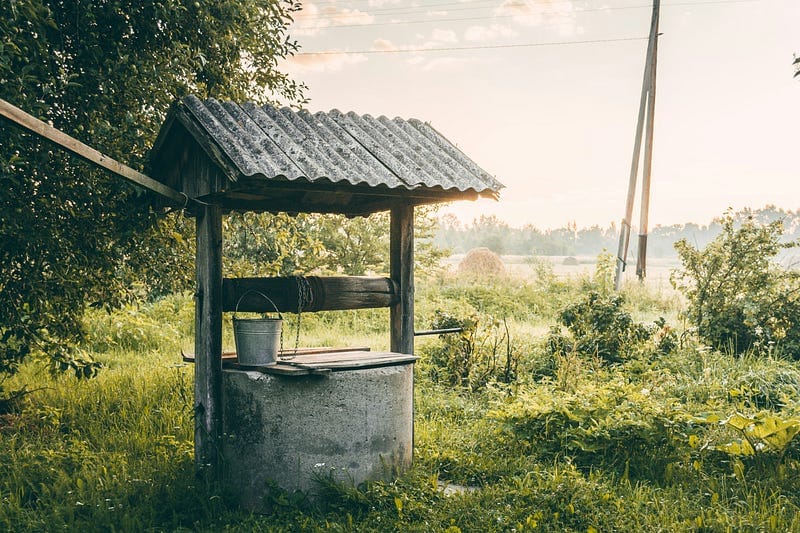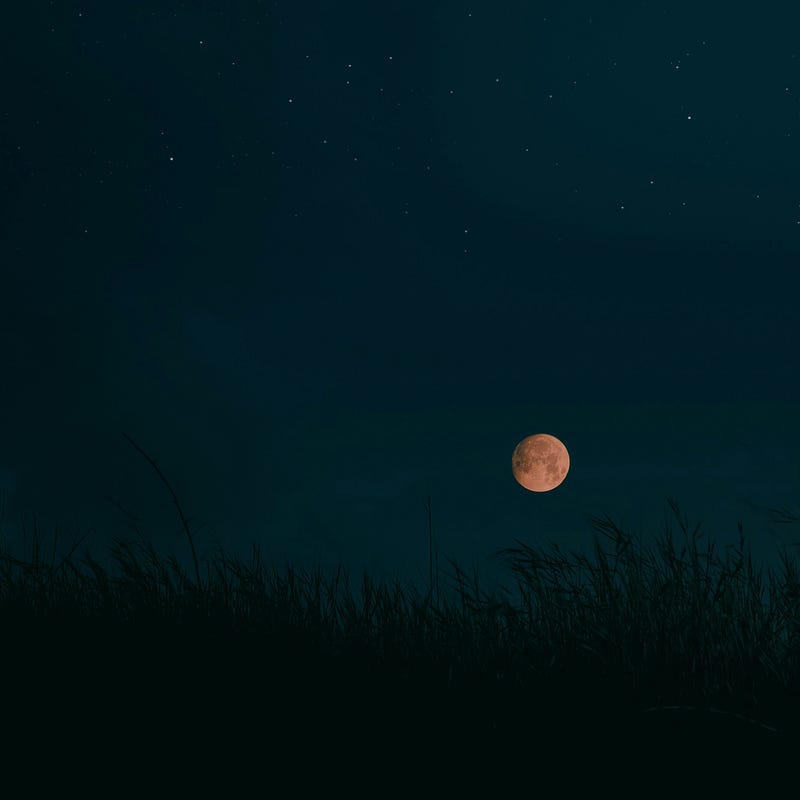Black Spot — Part 2
Black Spot’s mysterious identity and intentions lead one of the children to do some investigating.

Black Spot’s identity and intentions remain a mystery, but one child is determined to find out more.
Sometimes there would be a windless day, when everything was still, and quiet, and time seemed to pass by with blinking. Every day like this was comprised of a handful of hours, not enough to get anything substantial done in, and too hot for it as well, when it’s summer.
It was the summer of my tenth year, and I was quickly coming to detest these days. Not because of their shortness, no. The sooner I grew up and got out of here, the better.
I hated these days because no matter how easy the work, there was no wind to bat the sweat off my back and push me forward. That’s what I thought the worst feeling in the world: heat and grime stuck to skin, and no relief until the night fell, and you got to wash in the river. So cool and sweet were those nights, and only to wake up the next day as if you never washed at all.
I was sweeping the hearth on this day. The stones hadn’t yet cooled and so I scrubbed the last of the soot off with drops of my own sweat, hoping and dreaming of thunderstorms and long, loud rain. Cedric played at the other end of the room, with a bit of twine he was still teething on. As long as he didn’t knock over the pot of soot I’d swept out, I could overlook his sloth.
Finally swept clean, I left the hearth and slumped against the wall, scrubbing a grey layer off my face. It stuck to my sleeves instead.
Fionna entered then with a basket of laundry, more baked than dried in the sun. Without wind, even clean linens smelled stale. A summer breeze ought to fly the smells of the flower fields nearby and freshen them up. She dropped the clothes onto a rack and they fell limp and lifeless in piles.
“Clean yourself,” she said. “Fold these.”
Since Cedric’s little adventure, she’d been reduced to short, two-word sentences and commands, sometimes grunts of dissent, and she never looked us in the eyes. Cedric still babbled excitedly to her, forgetting her betrayal, but she didn’t pick him up anymore.
With eyes averted, Fionna left me alone with Cedric still making hands at her. I gave him back the twine, and went in search for some water to clean my hands. At the well, I drew up the heavy pail and buried my hands up to the elbows in the icy water. A sigh escaped my lips as the chill climbed up my spine, comfortable, and relieving.
“Look,” came a voice, and I registered the presence of Ciara opposite me, holding herself up on her crutch and waiting for her turn. Her hands were covered in blisters and nicks from her mending, which she was improving at, given Fionna didn’t care to teach her anymore.
But her finger, raw and plastered, was pointed over my shoulder, at the long road that led into town, though none of us but Cedric had ever taken it, and nobody ever alone. Even Fionna waited until Mondays when the vicar was free to go out with her for any food we didn’t already grow here. Other than them, our village was all but forgotten by the rest of the world.
Them and Black Spot, who was at that time sat astride his black mount, looking about as if he was expected.
An icy splash at my feet and over the front of my skirts alerted me that I’d dropped the pail, and the water rinsed with old soot ruined the front of it. But there was no time for worrying about washing now. Ciara slunk away into the adjacent corn field, disappearing from the top of her head to the bottom of her crutch. She took to doing so every time Black Spot arrived, which had been thrice since Cedric was taken.
By then we had a short routine. He appeared without warning, and none could predict what weather would bring him. He’d come in snow and rain as well, over the year we’d known (and known nothing) about him. He spoke to none but Fionna, and paid what he was asked. In turn, Fionna would wrestle a child from among us of whatever age Black Spot demanded, and he’d ride away down the same road he came.
Then when night fell, we’d all gather around the fire and pray together. Sure enough, the child taken would be safe in bed the very next morning.
Fionna appeared on the porch when I called her, drifting past me, pale but determined. Her hands were in her pockets but she took them out and folded them over her apron when she walked up to the left of him, and bowed her head, still confused about how to greet him.
There was one more thing about Black Spot that worried us, or at least the children old enough to spot a pattern: every child he took was older than the last. Cedric was less than a year old when he was taken, Virginia was two, Phillip four and now —
“Hetty, fetch Ciara from wherever she’s hiding.”
Seven.
The stalks of corn, still too young to be shucked, gave a tremble beside the well. There was still no wind.
“Fetch Ciara,” repeated Fionna, with a tremble herself.
Nobody ever said anything about where they’d been taken. It was as if their tongues were tied with the pink ribbons they showed up with, either braided in their hair or tied with a silver charm about their wrist. There was nothing, and there never would be anything from them, except a less hungry look in their cheeks, for the next couple of days. Then, it was as if it was all forgotten by them as well.
I had to know.
Ciara made her excuses, begging with Fionna with whatever words she knew. She never resorted to curses, no matter how many she heard from the rare visitors passing through, who looked at our hollow faces and busy hands and crossed themselves before making their quickest way out of our sight.
Her excuses were nothing to Fionna’s heavy pockets, and I mentally debated whether to offer myself up instead. Would it make a difference? He wanted a child, and I was on track to leaving my childhood sooner than most. My callused hands and hollow eyes horrified even me when I saw myself in the water of the well. A haggard witch was hidden beneath my youthful skin, with the soul hardly spared. Ciara could still pass for a child, at least.
“Tie this to your boot,” I told her, wrapping a cord around a small leather pouch, which I’d stuffed to the brim with soot from the hearth. “When you get to the crossroads, cut a hole in the bottom, and the soot will lead me to you.”
Ciara vacantly nodded, her golden hair swept before her eyes, curtaining them, but I knew from drying them so many times they were tearful and red. She finished washing her face in peace, while Black Spot’s permeating gaze tracked us through the house.
I walked her to the saddle’s edge, and ensured the leather pouch was discreetly tucked under her coat. All she had to do was twist her heel, and the seams would come undone. There was no wind, the soot would leave a path to follow by moonlight.
The other children had seen each other come and go. Go with hungry tongues and soot-lined scalps, and return like babes of Kings. They looked on Ciara’s departure with envy. I followed her until the Black Spot on the horizon shrank to a flea, and returned to my chores.
Come night, I determined, I would find out who this borrower was, and where he took my orphan siblings.

